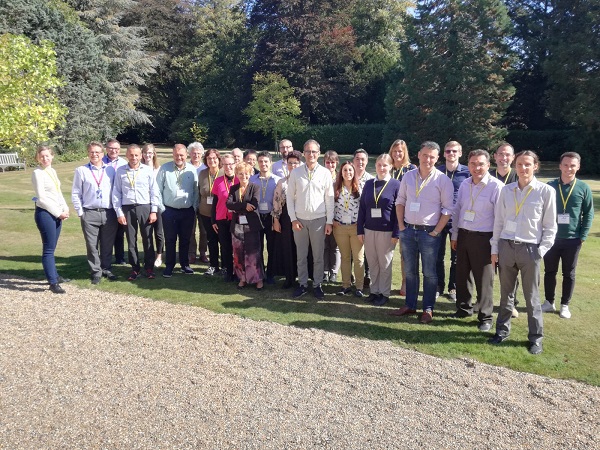
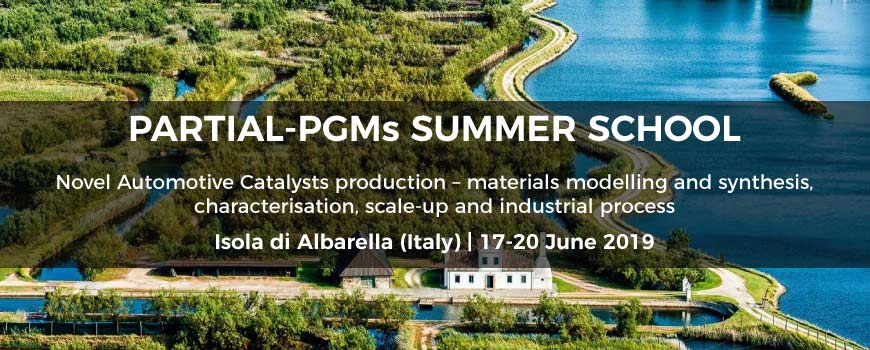
PARTIAL-PGMs Summer School focused on the process of creation and production of novel automotive Catalysts, from materials modelling to the industrial scale-up, going through materials syntesis, characterisation and testing.
The Summer School gave to the participants the unique opportunity of learning from and network with eminent academics and professionals in the field.
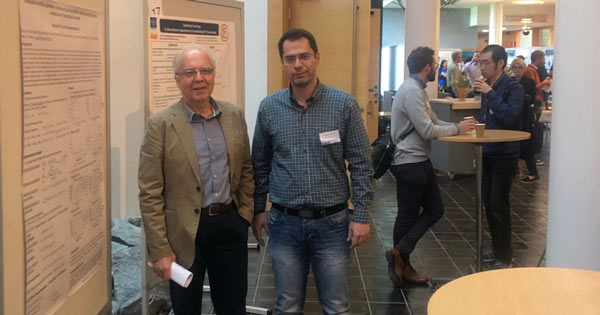
Multiscale modelling (coupling & linking of models) is a central theme in molecular and materials modelling of complex systems, and it is also a central theme of this meeting. This was the 2nd international EMMC-eSSENCE meeting with the sub-theme of physics-based & data-driven modelling.
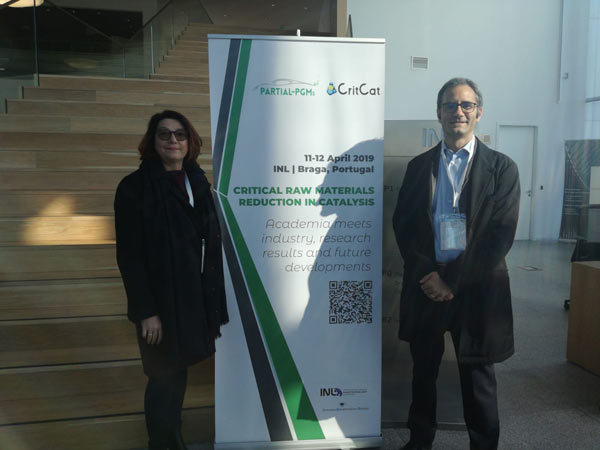
PARTIAL-PGMs and CritCat Consortia met academic, industrial and policy makers representatives, to discuss research results and future developments for the reduction of Critical Raw Materials use in Catalysis.
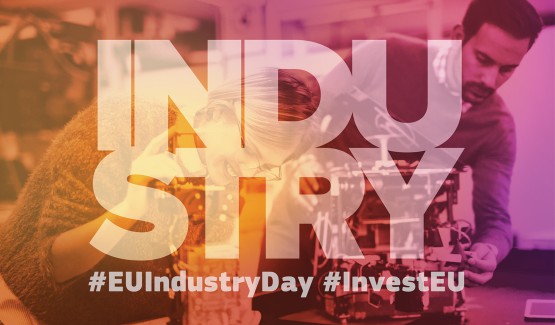
EU Industry Days 2019 focused on key industrial challenges such as sustainability, digitalisation, investment and globalisation. The event, on 5-6 February, demonstrated how EU industrial policy benefits European citizens and provided input for future policy making.
EU Industry Days gathered around 1,800 participants from across Europe and beyond, including stakeholders representing industry, trade unions, national and regional authorities, and civil society.
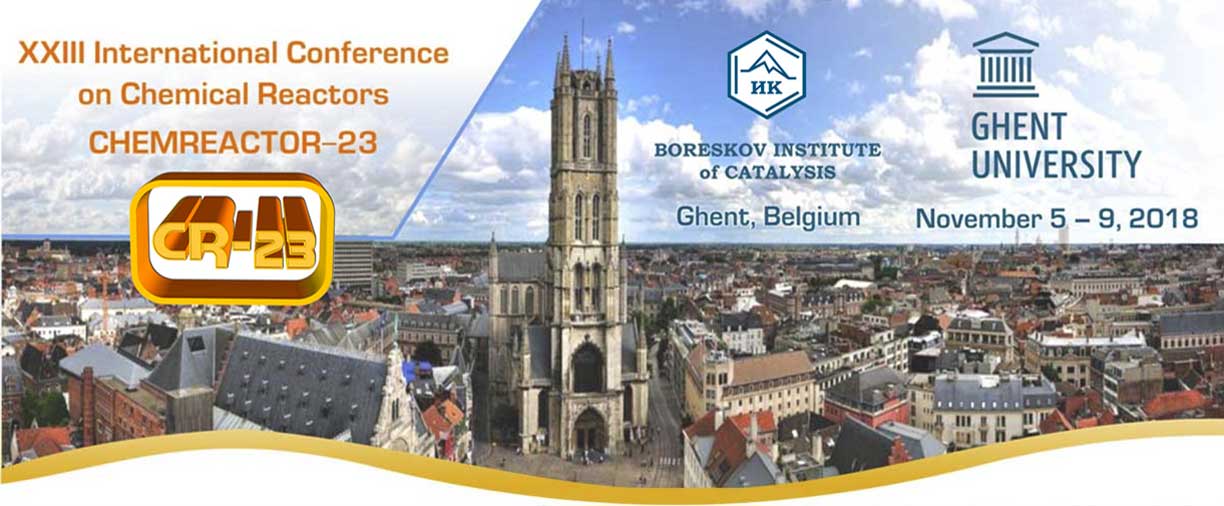
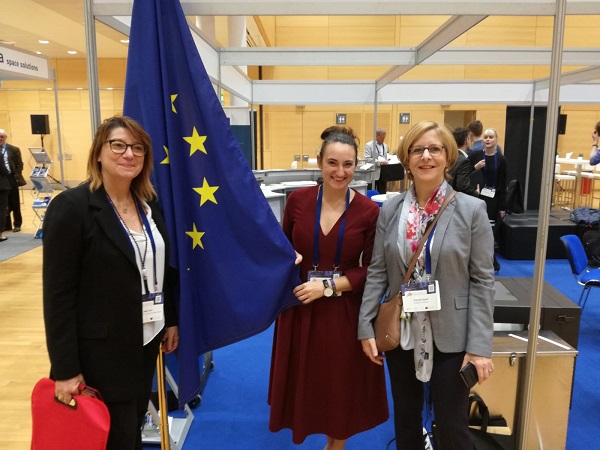
INDTECH2018 was an event of the Austrian Presidency of the Council of the European Union and it combined keynote presentations, talks, a matchmaking event and exhibitions. It provided an excellent opportunity to meet experts from industry, academia and policy to exchange information and to strengthen collaboration.
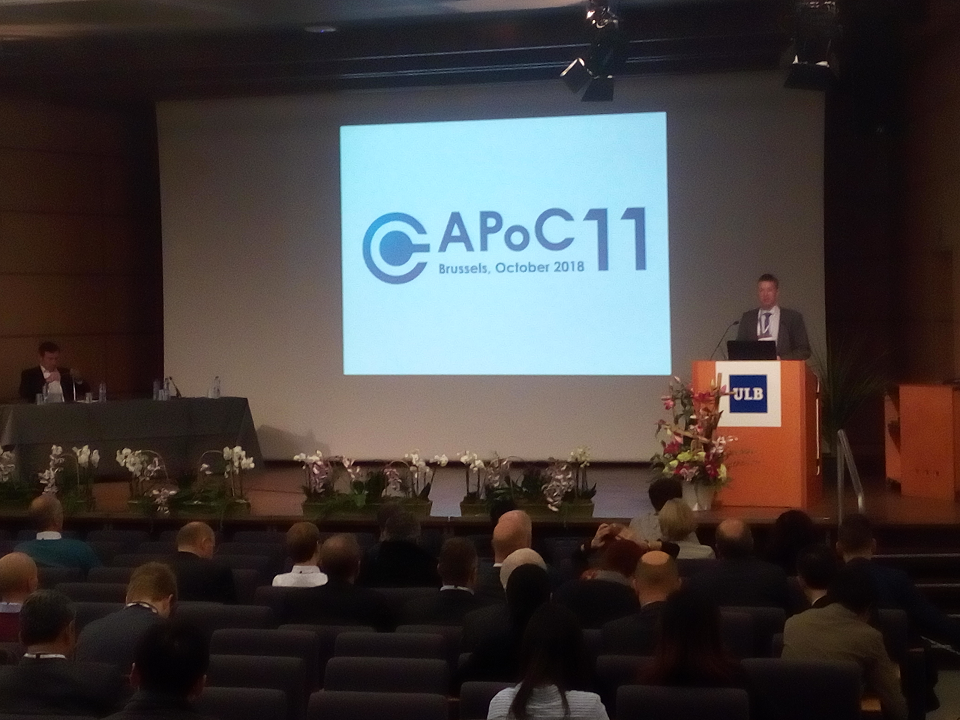
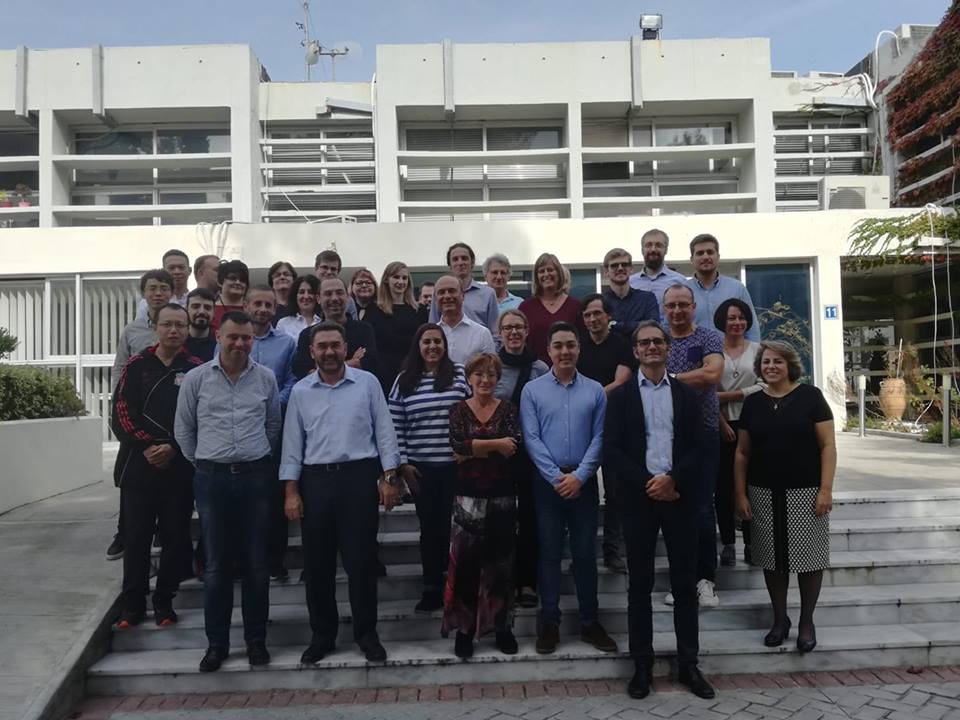
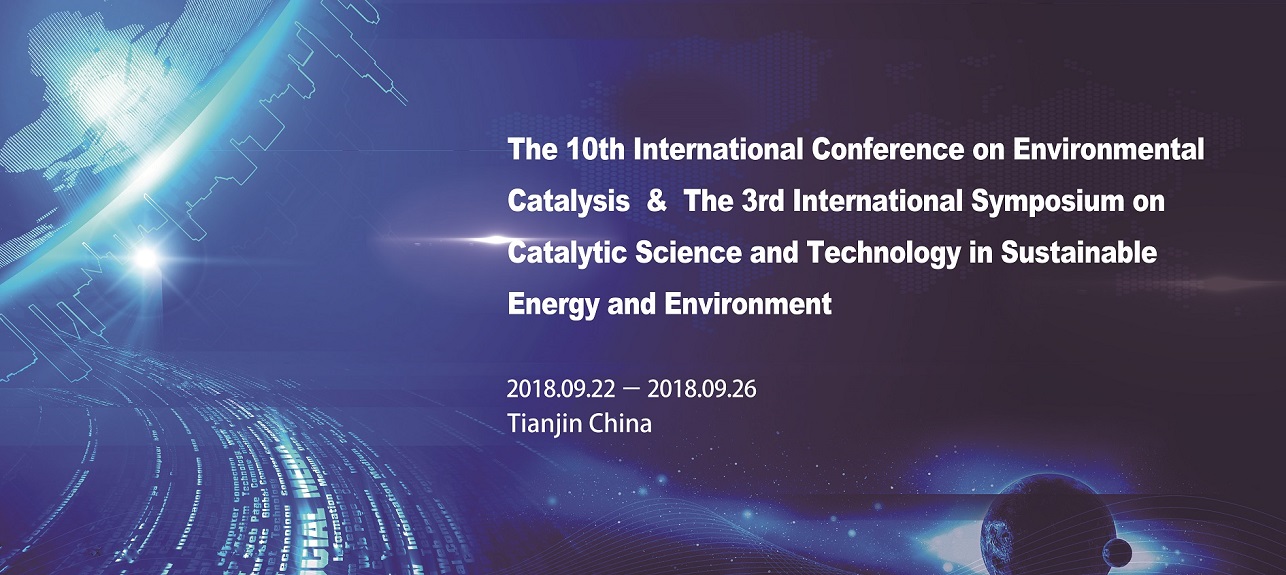
The biennial conference aims to strengthen international cooperation with a focus on global environment protection and its contribution to economic and social sustainability.
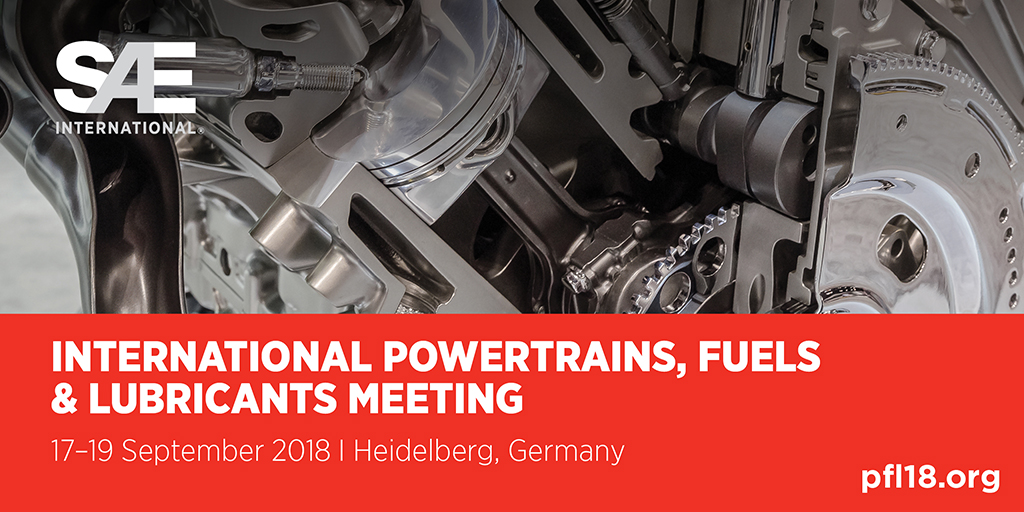
The International Powertrains, Fuels and Lubricants (IPF&L) Meeting is where the most highly regarded experts in engineering, science and supply will gather to hear and discuss new and emerging technologies that are being implemented to meet regulations by reducing emissions and boosting fuel economy, while delivering the best overall powertrain performance.
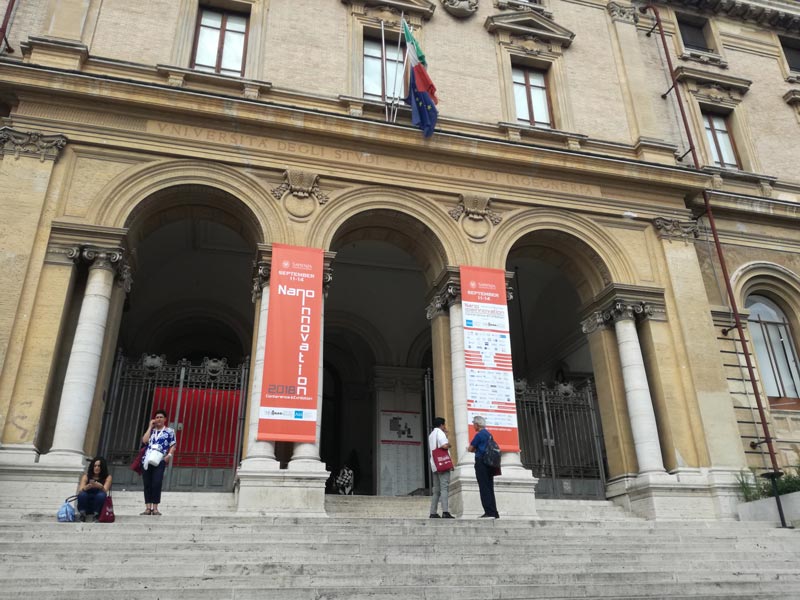
More than 1,200 researchers and professionals attended the event, entering in contact with leading exhibiting companies and research teams. Significant affluence has been recorded in the over 80 symposia, joint events, workshops, key note and special sessions which took place.
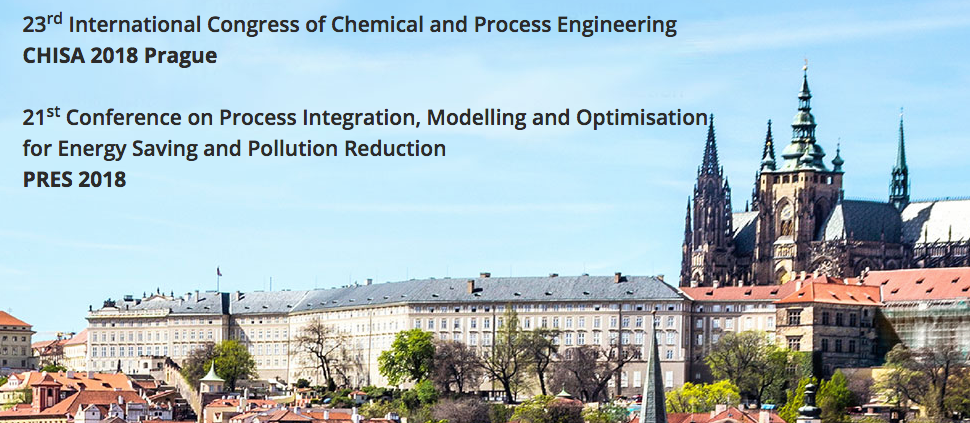
The series of International Congresses CHISA taking place in the centre of Europe started in 1962 in Brno, Czechoslovakia then continued in Mariánské Lázně, and since 1972 the Congresses have been held in Prague.
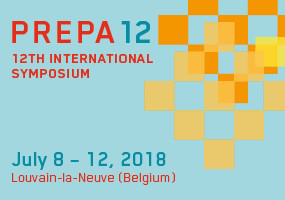
Scope of the conference was the newest developments in inorganic materials and their production with an emphasis on the environmental impact. Researchers presented fundamental concepts alongside cutting edge developments on a broad range of topics including nanotechnology, energy related materials, cement/gypsum and lime, sustainable chemistry, catalysis and novel processing techniques.
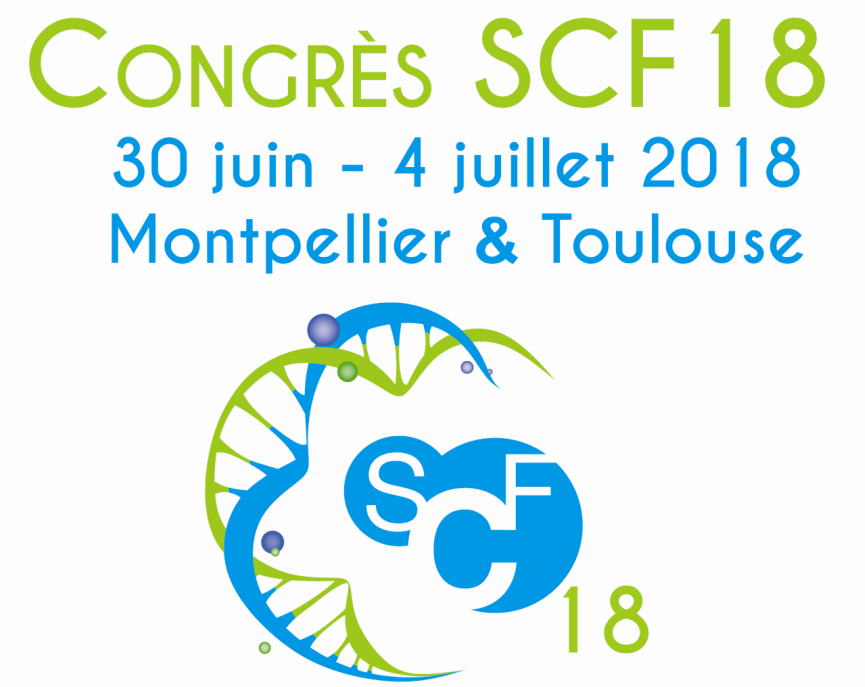
The Société Chimique de France organised its national congress Thematic sessions including one for « Chemistry and Life »
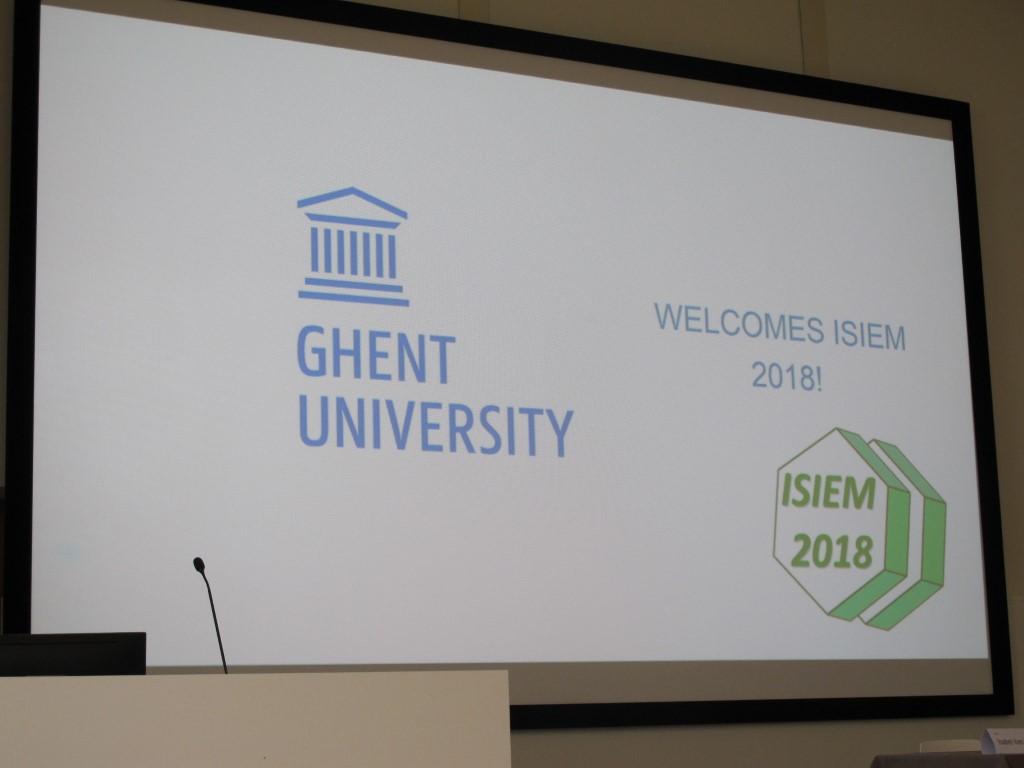
Scope of the conference was the newest developments in inorganic materials and their production with an emphasis on the environmental impact. Researchers presented fundamental concepts alongside cutting edge developments on a broad range of topics including nanotechnology, energy related materials, cement/gypsum and lime, sustainable chemistry, catalysis and novel processing techniques.
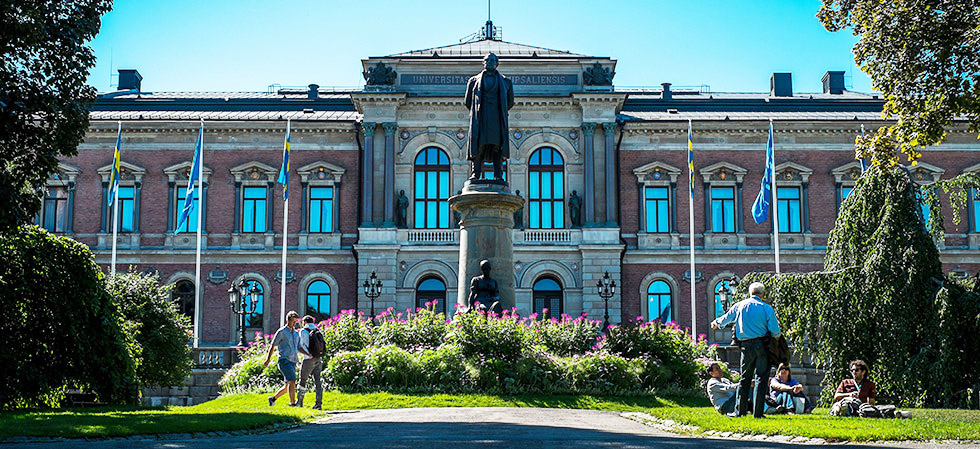
Researchers in computational chemistry, physics, biology, and engineering traditionally use physics-based* models, but currently there is much excitement about big data and machine learning in materials and molecular modelling, and about the opportunities that these approaches may bring. But are there also scientific shortcomings associated with it?
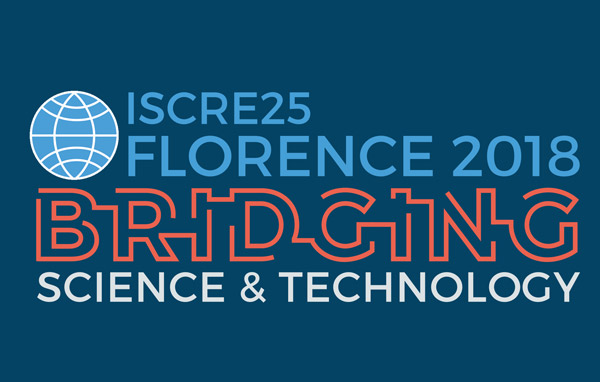
The theme of ISCRE25 was ``Engineering the chemical transformation by bridging science and technology``. Accordingly, the topics of the Conference covered both the latest methodological developments as well as the many emerging applications of CRE to crucial technologies for energy conversion, environmental protection and sustainable chemicals production.
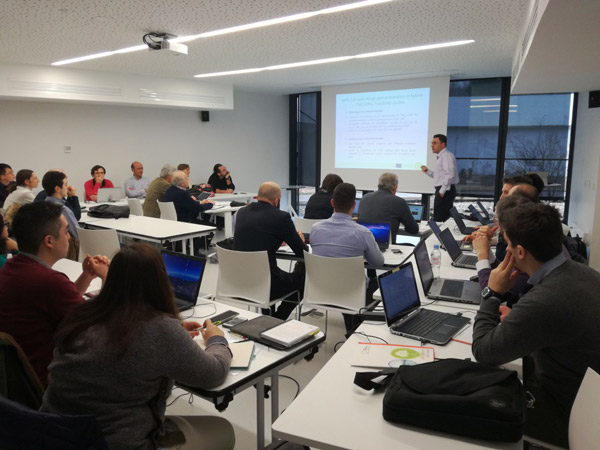
The meeting location was the Lille University with the presence of the project partners.
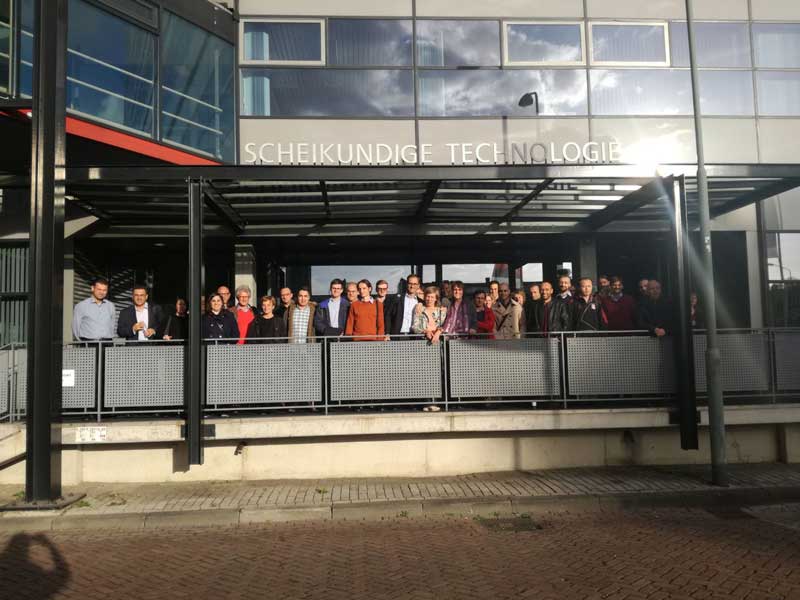
The meeting location was the Eindhoven University of Technology (Eindhoven, The Netherlands) with the presence of the Project Officer from European Commission, Anne De Baas.
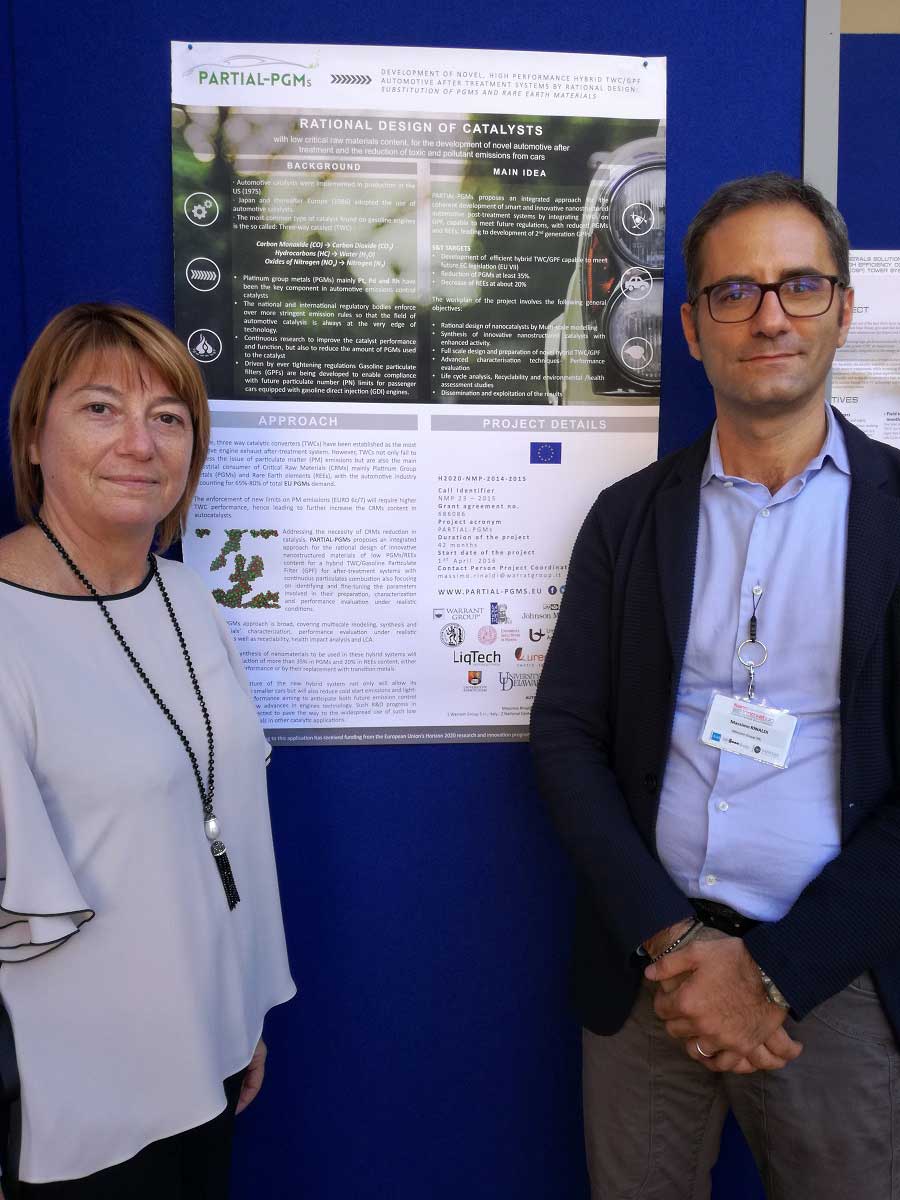
Partial-PGMs was in Rome (Itay) at NanoInnovation 2017. NanoInnovation 2017 is the most important international event in Italy dedicated to nanotechnologies and their integration with KETs, gathering together the main actors of the scientific, industrial, economic and institutional world active in the field of innovation, research and technology transfer.
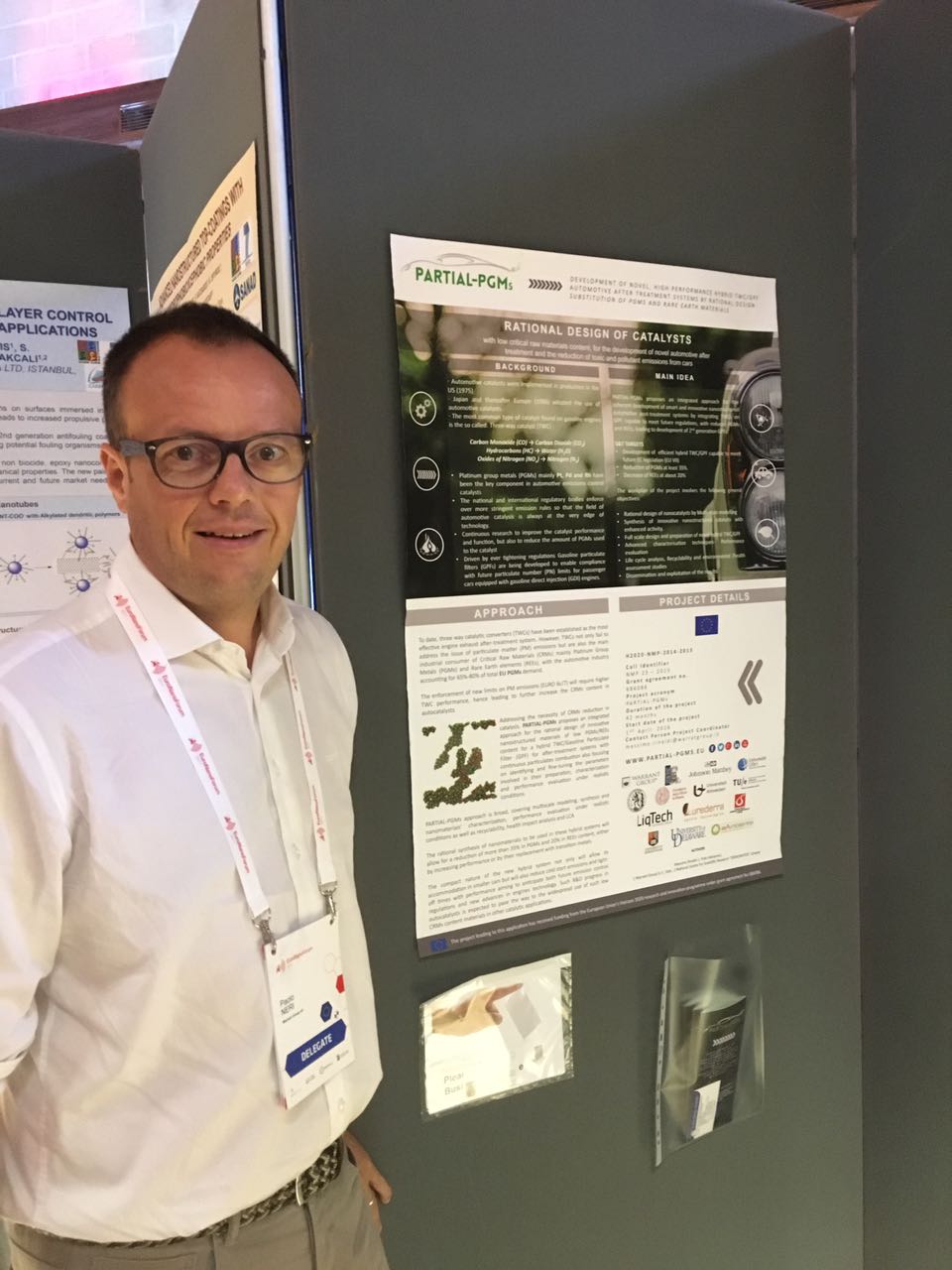
Partial-PGMs was in Malta at EuroNanoForum 2017. This has been the perfect occasion to present the Dissemination Material of the project in order to communicate the aim of the project.
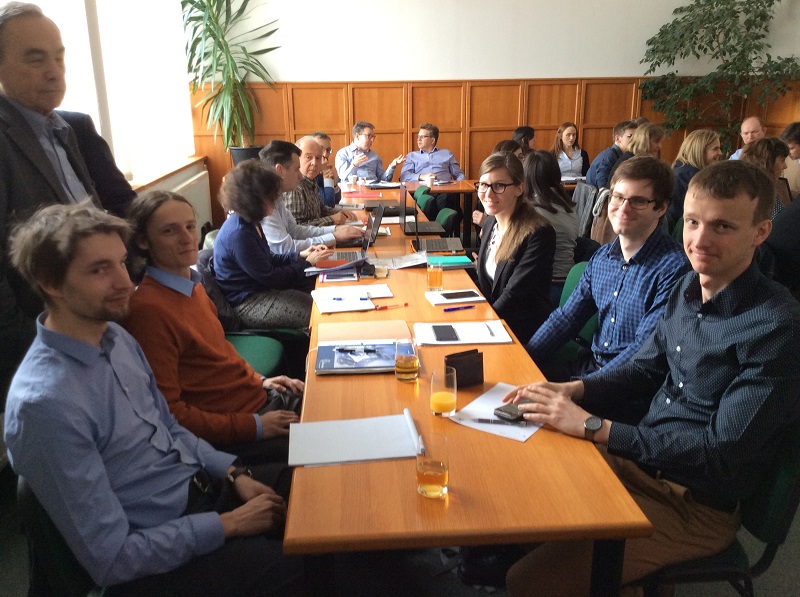
The meeting location was the University of Chemistry and Technology of Prague (Department of Chemical Engineering). In this occasion, the partners had the opportunity to share datas on project development.
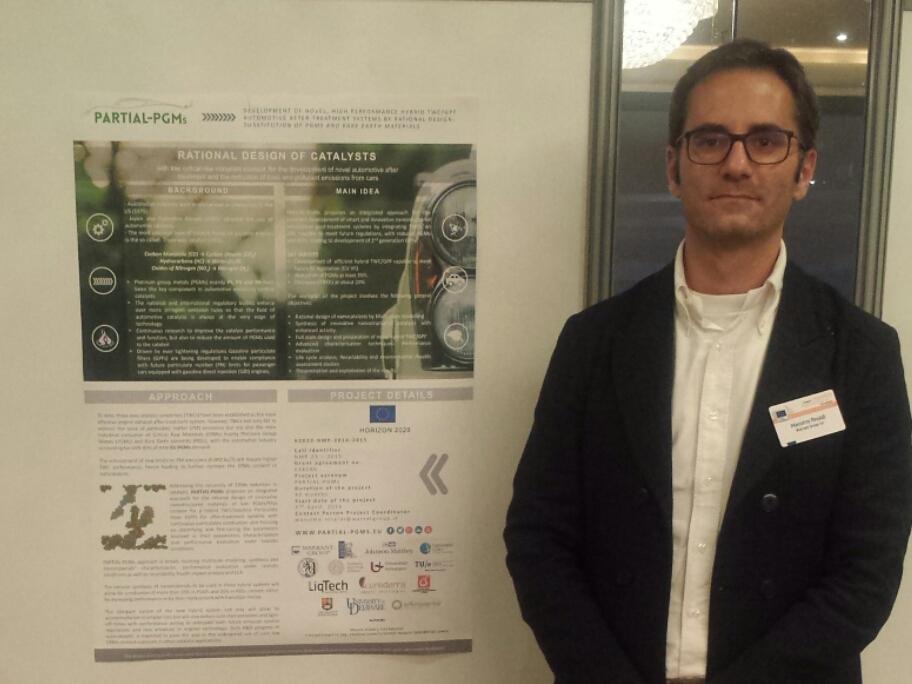
On 29 November 2016, the EU hosted the 6th EU-US-Japan Trilateral Conference on Critical Materials, which focused on strategies for the sustainable supply of critical raw materials. Partial-PGMs was at the event.
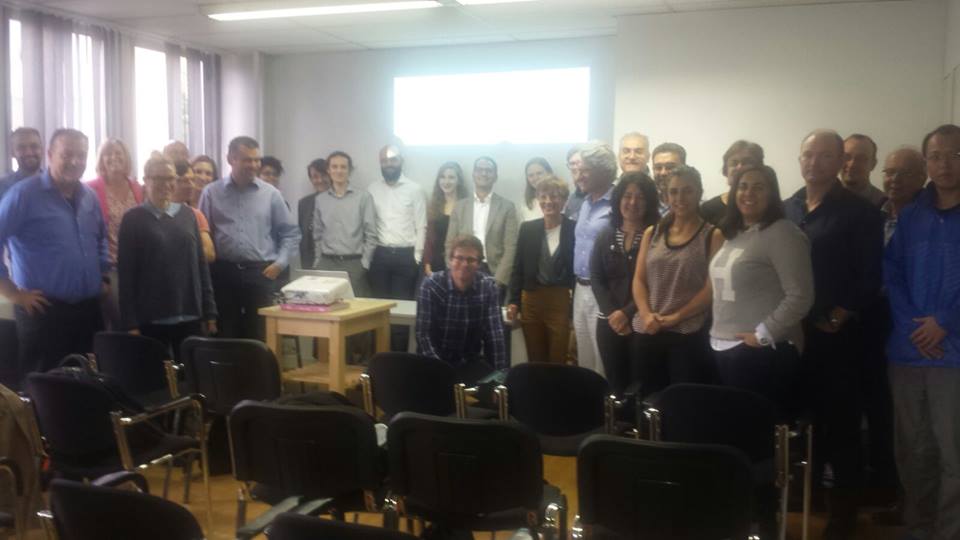
The meeting location is the Chambre de Commerce Belgio-Italienne, Brussels, Belgium, with the presence of the Project Officer from European Commission, Anne Debaas.
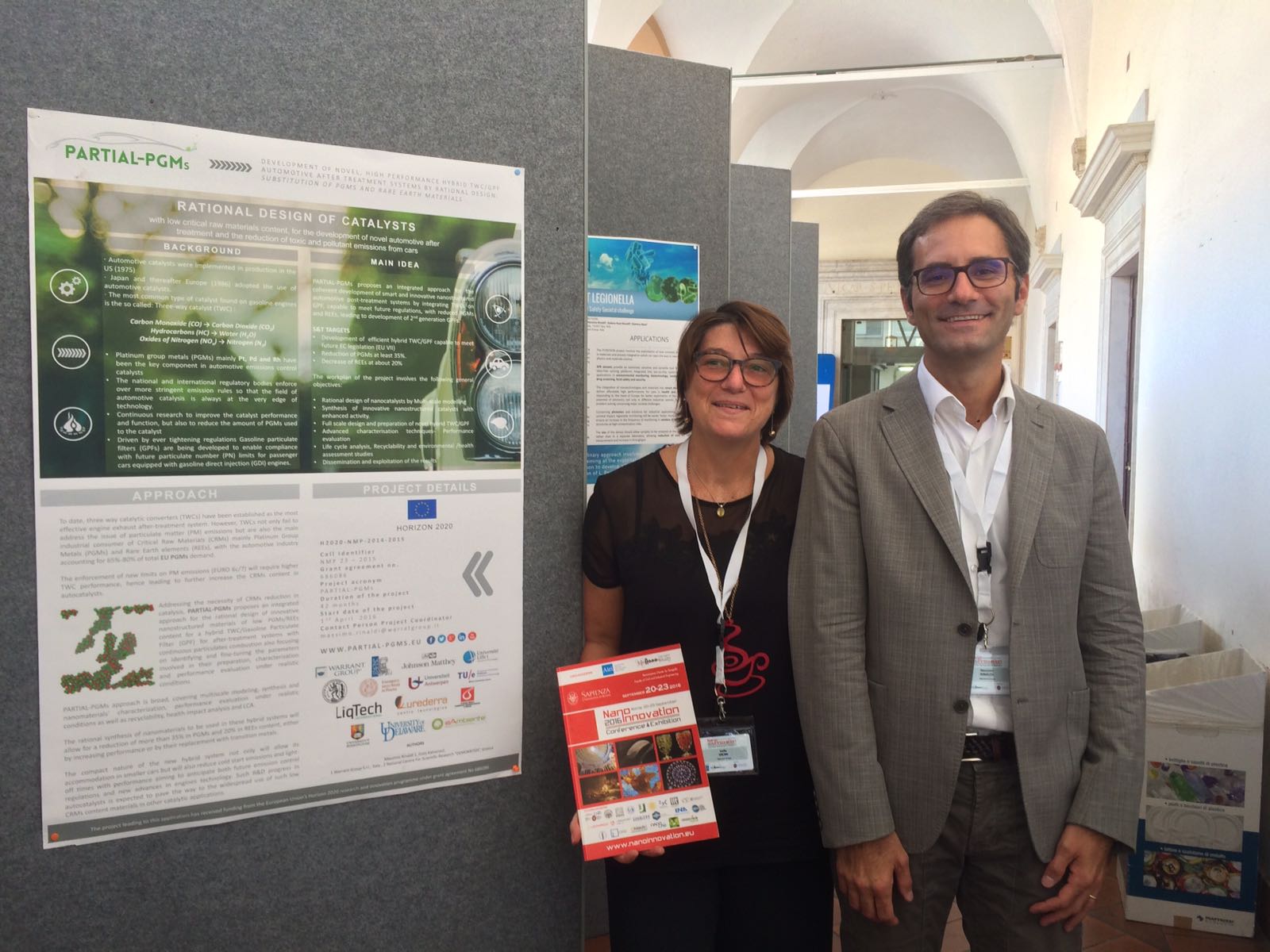
PARTIAL-PGMs Poster, at Nanoinnovation 2016, Rome (IT), 20 – 23 September 2016.
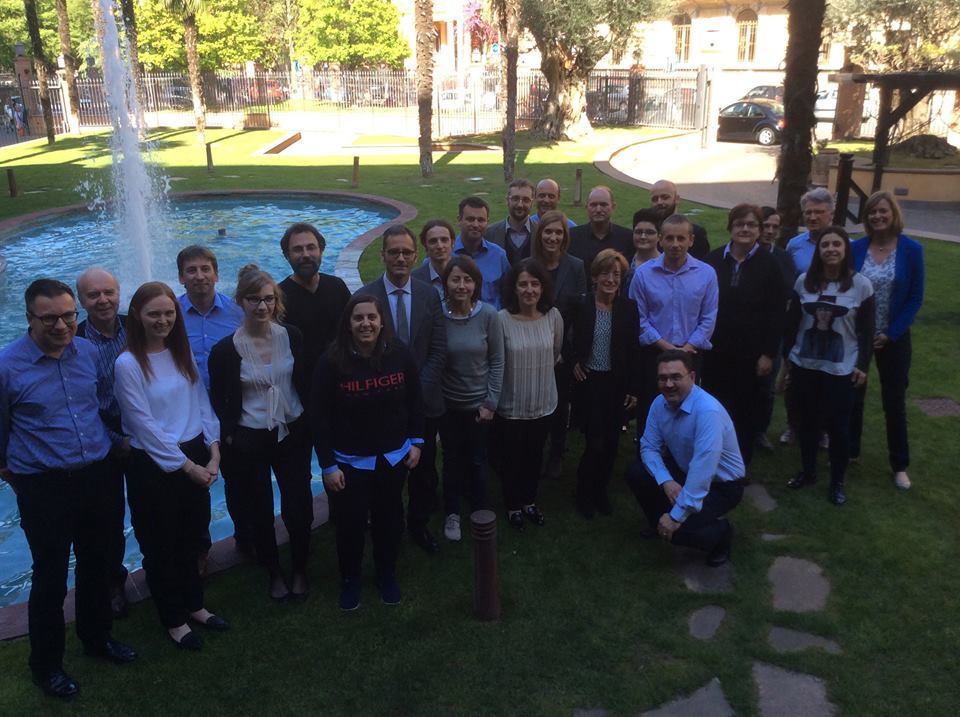
Subject covered: contractual aspects, workplan of the project, management structure and bodies, work planning for the first phase of the project